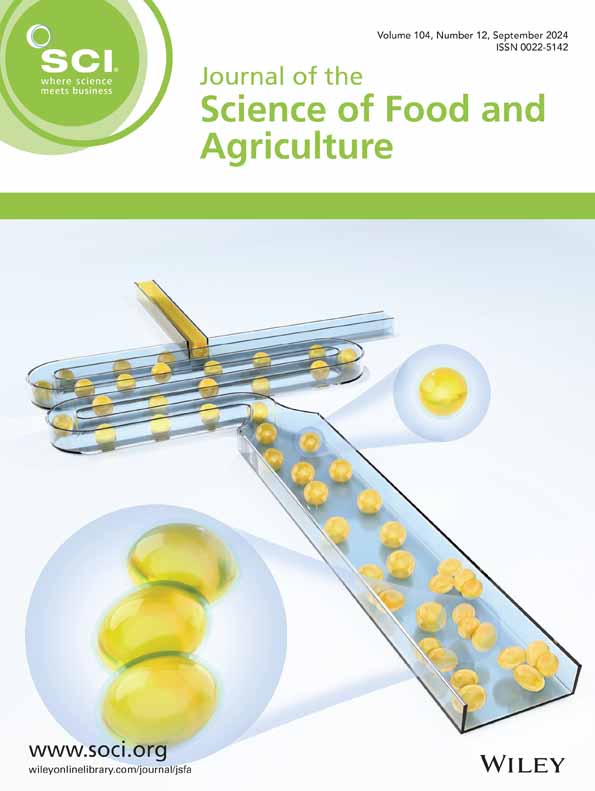求助PDF
{"title":"Non-thermal plasma: a versatile technology for food industry and seed germination - review.","authors":"Mujeeda Banu, Amruthur Doreswamy Iyengar Srinivasan","doi":"10.1002/jsfa.70189","DOIUrl":null,"url":null,"abstract":"<p><p>Sustainable agriculture requires the exploration and development of eco-friendly technologies to increase crop production. Non-thermal plasma (NTP), also known as cold plasma, is a transformative, eco-friendly technology with significant potential in the agriculture and food industries. NTP technology is a unique strategy that the food industry can utilize in this era of green technology. This review explores the principles of NTP, the generation methods, and its applications, majorly focusing on its role in enhancing seed germination and food processing. NTP, a partially ionized gas generated near room temperature by methods like dielectric barrier discharge (DBD) plasma or plasma jets, enables heat-damage-free surface modification through its production of reactive species. NTP sparks a biological chain reaction at the microscopic level inside seeds and plants which help plants to absorb more nutrients, boost their natural antioxidants, and fight off harmful pathogens, to ensure improved germination, seedling growth, plant growth, and increased harvesting. For seed germination, NTP gently alters the seed coat to produce reactive oxygen and nitrogen species (RONS) and other charged particles which increases hydrophilicity, and triggers biochemical changes. Without thermal damage, seeds become more active and will be ready to grow. A comparative analysis has been done considering different treatment methods across a range of crops. Despite challenges like scalability and standardization, the ability of NTP to reduce chemical inputs positions it as a cornerstone for sustainable agriculture. This review shines a light on NTP's game-changing potential in agriculture while pointing out areas that need more research. Looking ahead, scientists are working on creating portable NTP devices and standard protocols that could make it easier to use on a commercial scale. If successful, this innovation could reshape food offering a powerful tool in the fight for global food security. © 2025 Society of Chemical Industry.</p>","PeriodicalId":17725,"journal":{"name":"Journal of the Science of Food and Agriculture","volume":" ","pages":""},"PeriodicalIF":3.5000,"publicationDate":"2025-09-12","publicationTypes":"Journal Article","fieldsOfStudy":null,"isOpenAccess":false,"openAccessPdf":"","citationCount":"0","resultStr":null,"platform":"Semanticscholar","paperid":null,"PeriodicalName":"Journal of the Science of Food and Agriculture","FirstCategoryId":"97","ListUrlMain":"https://doi.org/10.1002/jsfa.70189","RegionNum":2,"RegionCategory":"农林科学","ArticlePicture":[],"TitleCN":null,"AbstractTextCN":null,"PMCID":null,"EPubDate":"","PubModel":"","JCR":"Q1","JCRName":"AGRICULTURE, MULTIDISCIPLINARY","Score":null,"Total":0}
引用次数: 0
引用
批量引用
Abstract
Sustainable agriculture requires the exploration and development of eco-friendly technologies to increase crop production. Non-thermal plasma (NTP), also known as cold plasma, is a transformative, eco-friendly technology with significant potential in the agriculture and food industries. NTP technology is a unique strategy that the food industry can utilize in this era of green technology. This review explores the principles of NTP, the generation methods, and its applications, majorly focusing on its role in enhancing seed germination and food processing. NTP, a partially ionized gas generated near room temperature by methods like dielectric barrier discharge (DBD) plasma or plasma jets, enables heat-damage-free surface modification through its production of reactive species. NTP sparks a biological chain reaction at the microscopic level inside seeds and plants which help plants to absorb more nutrients, boost their natural antioxidants, and fight off harmful pathogens, to ensure improved germination, seedling growth, plant growth, and increased harvesting. For seed germination, NTP gently alters the seed coat to produce reactive oxygen and nitrogen species (RONS) and other charged particles which increases hydrophilicity, and triggers biochemical changes. Without thermal damage, seeds become more active and will be ready to grow. A comparative analysis has been done considering different treatment methods across a range of crops. Despite challenges like scalability and standardization, the ability of NTP to reduce chemical inputs positions it as a cornerstone for sustainable agriculture. This review shines a light on NTP's game-changing potential in agriculture while pointing out areas that need more research. Looking ahead, scientists are working on creating portable NTP devices and standard protocols that could make it easier to use on a commercial scale. If successful, this innovation could reshape food offering a powerful tool in the fight for global food security. © 2025 Society of Chemical Industry.

 求助内容:
求助内容: 应助结果提醒方式:
应助结果提醒方式:


